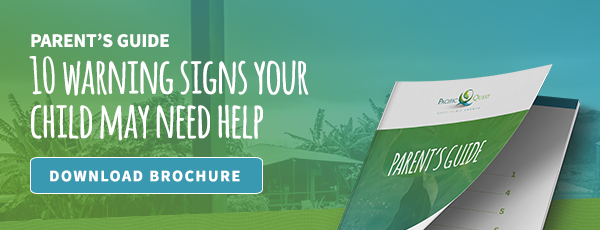Parenting a teenager is no small feat. As children work their way through adolescence, they struggle with issues of identity, independence, peer pressure, and anxiety about the future. For adopted teens, these issues are often compounded with thoughts about their birth families and why they were given up for adoption. That combination of stressors can sometimes be volatile, leading to risky or out-of-control behavior, which, in turn, can negatively affect the entire family’s well-being. Adoption Awareness Month, November, is a good time to take a look at some of the issues that are known to manifest in adopted teens.
Drug and Alcohol Use
Many teens experiment with drugs and alcohol, but adopted teens may abuse these substances to deal with, or numb their feelings about issues concerning adoption, who or where their biological family is, whether they have siblings. In addition, adopted teens with a history of substance abuse in their biological families are twice as likely to develop their own substance abuse problems.
Running Away from Home
Teens most often run away in a misguided attempt to solve a problem. For adopted teens, that could mean endeavoring to escape from the pressures of having to figure out who they are, and where they fit in the world. Some teens run away in an attempt to find their biological families. This is even more likely if the adoptive parents react negatively to the teen’s request for information about their birth families.
Problems with Sibling Relationships
Sibling rivalries occur in almost every family but can happen more frequently when an adopted teen has siblings who are the parents’ biological children. The adopted teen may feel like an outsider, while the siblings may resent the turmoil caused by the adopted teen.
While almost all adopted teens can benefit from working closely with a counselor, struggling teens exhibiting these behaviors may need more intensive help. Family therapy can be extremely beneficial, especially if the adopted teen’s struggles are impacting the well-being of the entire family. Another option is to enroll the teen in a wilderness therapy program like the one offered by Pacific Quest. Pacific Quest gives teens a safe, positive environment where they can work through their problems with the guidance of a highly trained staff and the support of a peer group. We’re here to answer any questions you may have about how to help the adopted teen in your life.

Parenting an Adopted Teen
Parenting a teenager is no small feat. As children work their way through adolescence, they struggle with issues of identity, independence, peer pressure, and anxiety about the future. For adopted teens, these issues are often compounded with thoughts about their birth families and why they were given up for adoption. That combination of stressors can …
Parenting a teenager is no small feat. As children work their way through adolescence, they struggle with issues of identity, independence, peer pressure, and anxiety about the future. For adopted teens, these issues are often compounded with thoughts about their birth families and why they were given up for adoption. That combination of stressors can sometimes be volatile, leading to risky or out-of-control behavior, which, in turn, can negatively affect the entire family’s well-being. Adoption Awareness Month, November, is a good time to take a look at some of the issues that are known to manifest in adopted teens.
Drug and Alcohol Use
Many teens experiment with drugs and alcohol, but adopted teens may abuse these substances to deal with, or numb their feelings about issues concerning adoption, who or where their biological family is, whether they have siblings. In addition, adopted teens with a history of substance abuse in their biological families are twice as likely to develop their own substance abuse problems.
Running Away from Home
Teens most often run away in a misguided attempt to solve a problem. For adopted teens, that could mean endeavoring to escape from the pressures of having to figure out who they are, and where they fit in the world. Some teens run away in an attempt to find their biological families. This is even more likely if the adoptive parents react negatively to the teen’s request for information about their birth families.
Problems with Sibling Relationships
Sibling rivalries occur in almost every family but can happen more frequently when an adopted teen has siblings who are the parents’ biological children. The adopted teen may feel like an outsider, while the siblings may resent the turmoil caused by the adopted teen.
While almost all adopted teens can benefit from working closely with a counselor, struggling teens exhibiting these behaviors may need more intensive help. Family therapy can be extremely beneficial, especially if the adopted teen’s struggles are impacting the well-being of the entire family. Another option is to enroll the teen in a wilderness therapy program like the one offered by Pacific Quest. Pacific Quest gives teens a safe, positive environment where they can work through their problems with the guidance of a highly trained staff and the support of a peer group. We’re here to answer any questions you may have about how to help the adopted teen in your life.

Questions? Call or Text our Admissions Team: 808-937-5806